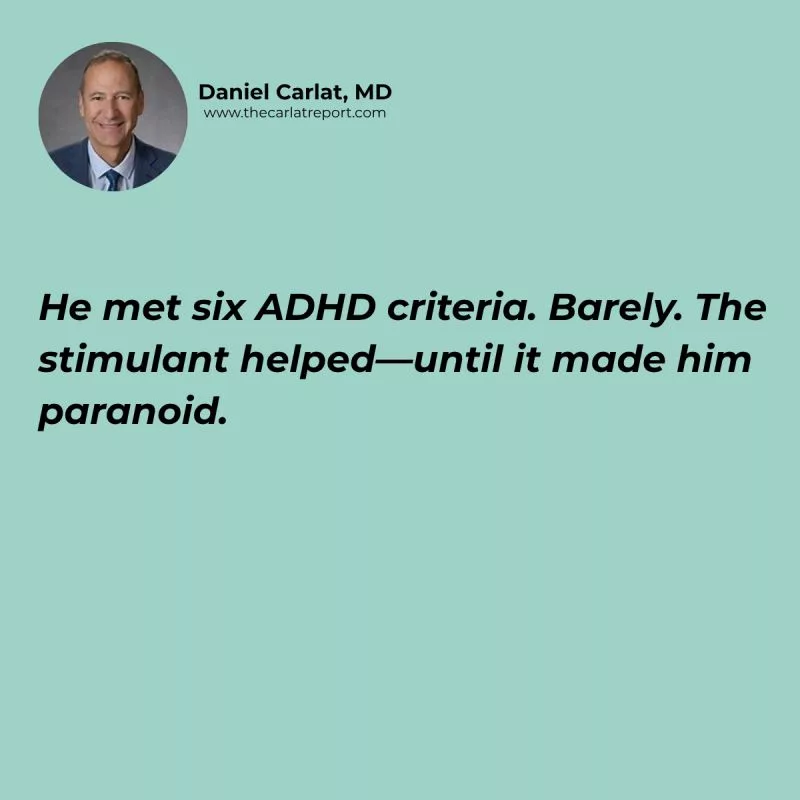“My brother made me promise to ask you if I have ADD.”
Terry was in his 40s. He came to see me after his wife admitted to an affair. She said it was over. He wasn’t so sure.
He couldn’t stop thinking about it. Couldn’t sleep. Couldn’t focus. Every moment was a swirl of doubt and anxiety. I diagnosed an adjustment disorder with anxiety. Gave him Ativan. It helped.
Then came the question. “Do I have ADHD?”
He was distracted. Disorganized. Unfocused. To me, it looked like turmoil, not a neurodevelopmental disorder.
Still, I asked the questions. He checked enough boxes. Barely met 6 criteria. Said he had symptoms as a kid: “I didn’t like school,” he said. “Always got into trouble.”
I had doubts. But I wanted to help. So I gave him a stimulant. A week later, he felt better. “More energy,” he said. “More motivated.” He asked for a higher dose. I agreed.
For a while, things looked up. Then came the paranoia.
“She’s seeing him again,” he said. “There are messages. Folded pieces of paper. My brother is whispering with her. My friends are talking about me.”It wasn’t just anxiety anymore. It was delusional. It’s not common, but it happens in somewhat shy of 1% of patients on amphetamines. I told him to stop the meds. He did. The paranoia vanished.
Adult ADHD is real. And underdiagnosed in many. But it’s also become overdiagnosed. The checklist is easy to game. The meds feel like a fix. That’s the danger.Every stimulant success story needs a Terry. A reminder that focus problems don’t always mean ADHD. That suffering doesn’t always need a label. And that quick relief can sometimes do lasting harm.
Anyone else have an ADHD cautionary tale?
Join the conversation on LinkedIn with Dr. Carlat.


_-The-Breakthrough-Antipsychotic-That-Could-Change-Everything.webp?t=1729528747)



